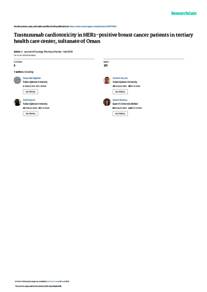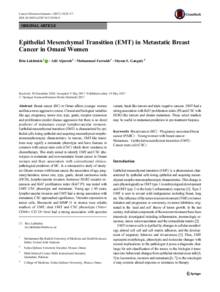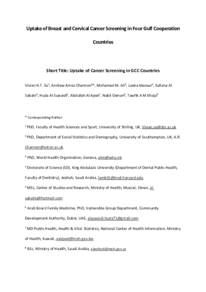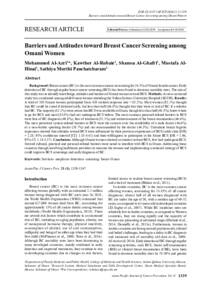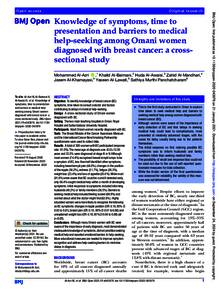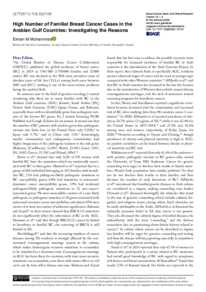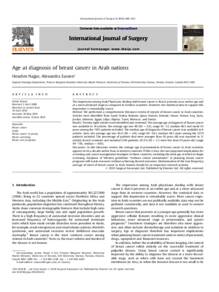Document
Trastuzumab cardiotoxicity in HER2-positive breast cancer patients in tertiary health care center, Sultanate of Oman.
Identifier
DOI: 10.1177/1078155220919888
Source
Journal of Oncology Pharmacy Practice. v. 27, 2, p. 312-321
Contributors
Younos, Ibrahim., Author
Al-Baimani, Khalid., Author
Al-Salhi, Dawood., Author
Al-Riyami, Adil., Author
Rizvi, Syed., Author
Buckley, Niamh E., Author
Country
United States.
Publisher
SAGE Publications Ltd.
Gregorian
2021-03-01
Language
English
English abstract
Trastuzumab, a monoclonal antibody targeting the human epidermal growth factor receptor 2 (HER2), is used to treat breast cancers harboring amplification of the HER2 locus. Cardiotoxicity is a common side effect of trastuzumab that leads to discontinuation of treatment in a significant proportion of cancer patients. In our retrospective study, we evaluate the prevalence and identify the risk factors for cardiotoxicity associated with trastuzumab in HER2-positive breast cancer patients attending to Sultan Qaboos University Hospital between 10/2012 and 10/2017. Using patient records, we collected patients’ characteristics (age, menopausal status, lymph nodal status, distant metastasis at presentation, grade of tumor, comorbidities (diabetes mellitus, hypertension, coronary artery disease diseases)), chemotherapy received and total dose of trastuzumab as well as cardiotoxicity (including timing). Cardiotoxicity was defined based on the ejection fraction dropping by 10% of the original value or a drop in the ejection fraction below the normal value. Among the 146 patients included in the study, 35 showed trastuzumab-induced cardiotoxicity (24%). Twenty-nine (83%) of those patients stopped trastuzumab temporarily. Risk of trastuzumab-induced cardiotoxicity was not altered by common cardiac risk factors such as history of coronary artery disease, hypertension and diabetes. Previous anthracyclines therapy exposure increased the risk of trastuzumab-induced cardiotoxicity significantly (p = 0.009). None of the other covariates influenced the incidence of trastuzumab-induced cardiotoxicity, which may be related to the relatively small sample size. Further studies are warranted to establish ways to predict, prevent, and treat trastuzumab-induced cardiotoxicity to provide patients with maximal therapeutic benefit.
ISSN
1078-1552
Category
Journal articles

